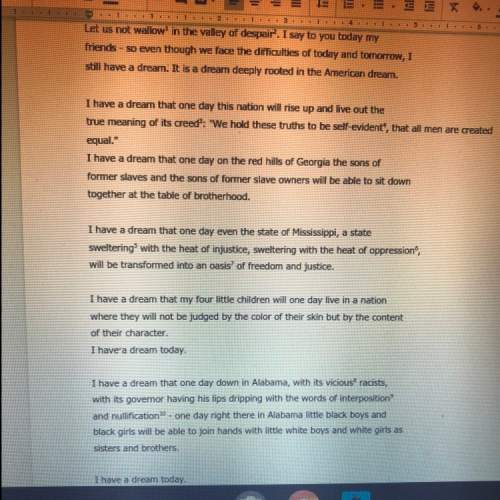
English, 06.10.2020 14:01 Wethepeeps6048
Mr. Utterson the lawyer was a man of a rugged countenance that was never lighted by a smile; cold, scanty and embarrassed in discourse; backward in sentiment; lean, long, dusty, dreary and yet somehow lovable. At friendly meetings, and when the wine was to his taste, something eminently human beaconed from his eye; something indeed which never found its way into his talk, but which spoke not only in these silent symbols of the after-dinner face, but more often and loudly in the acts of his life. He was austere with himself; drank gin when he was alone, to mortify a taste for vintages; and though he enjoyed the theater, had not crossed the doors of one for twenty years. But he had an approved tolerance for others; sometimes wondering, almost with envy, at the high pressure of spirits involved in their misdeeds; and in any extremity inclined to help rather than to reprove. "I incline to Cain's heresy," he used to say quaintly: "I let my brother go to the devil in his own way." In this character, it was frequently his fortune to be the last reputable acquaintance and the last good influence in the lives of downgoing men. And to such as these, so long as they came about his chambers, he never marked a shade of change in his demeanour.
No doubt the feat was easy to Mr. Utterson; for he was undemonstrative at the best, and even his friendship seemed to be founded in a similar catholicity of good-nature. It is the mark of a modest man to accept his friendly circle ready-made from the hands of opportunity; and that was the lawyer's way. His friends were those of his own blood or those whom he had known the longest; his affections, like ivy, were the growth of time, they implied no aptness in the object. Hence, no doubt the bond that united him to Mr. Richard Enfield, his distant kinsman, the well-known man about town. It was a nut to crack for many, what these two could see in each other, or what subject they could find in common. It was reported by those who encountered them in their Sunday walks, that they said nothing, looked singularly dull and would hail with obvious relief the appearance of a friend. For all that, the two men put the greatest store by these excursions, counted them the chief jewel of each week, and not only set aside occasions of pleasure, but even resisted the calls of business, that they might enjoy them uninterrupted.
What do you believe the allusion to Cain means in this passage?

Answers: 1


Another question on English

English, 21.06.2019 15:00
This is an acadamical question why does juelz get bit by an alligator and why was arthur the only one who in the middle chapter in the book
Answers: 1

English, 22.06.2019 03:00
This excerpt is from the poet by alfred lord tennyson the poem describes a poets consciousness and perception which three lines suggests the richness of a poets thoughts
Answers: 2

English, 22.06.2019 08:30
"such has been the patient suffrence of these colonies; and such is now the necessity which constrains them to after their former systems of government. the history of the present king of great britain is a history of reapeated injuries and usurpations, all having in direct object the establishedment of an absolute tyranny over these states." which statement best describes the excerpt
Answers: 1

English, 22.06.2019 10:00
What is the main reason reverened thomas lane butts finds confort in to kill a mocking bird
Answers: 1
You know the right answer?
Mr. Utterson the lawyer was a man of a rugged countenance that was never lighted by a smile; cold, s...
Questions




Mathematics, 10.07.2019 02:00

English, 10.07.2019 02:00



History, 10.07.2019 02:00




Biology, 10.07.2019 02:00



Mathematics, 10.07.2019 02:00

Mathematics, 10.07.2019 02:00

History, 10.07.2019 02:00







